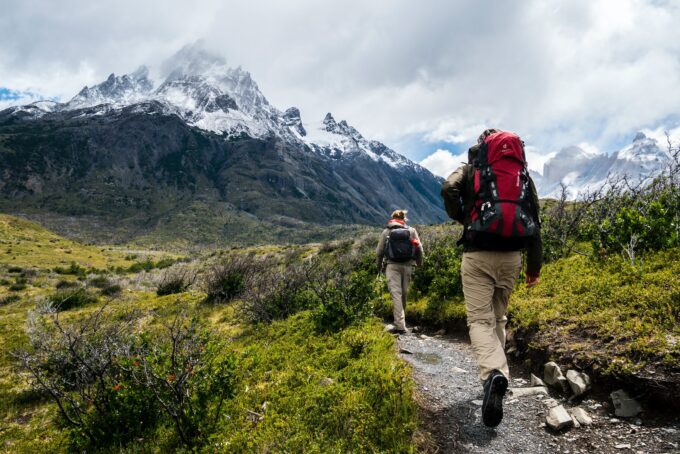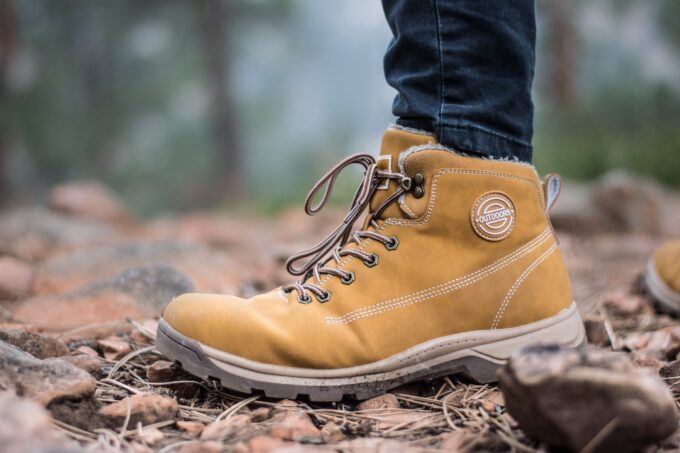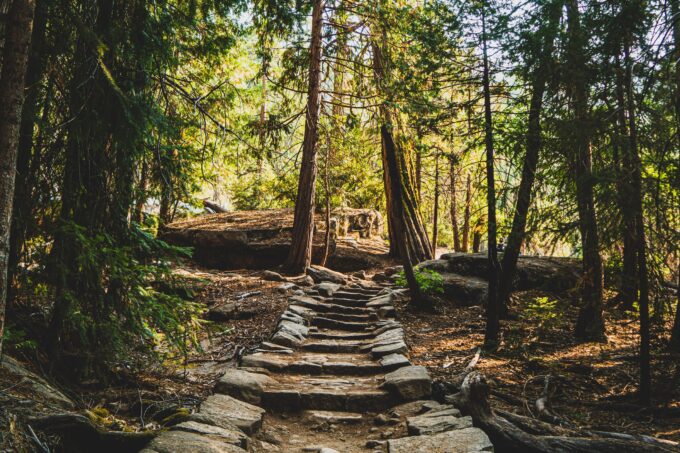Planning for a hike isn’t as simple as you might think, particularly if it’s your first time. You need to be prepared with the right gear and food, but that’s only the beginning. What if it rains? How will you find your way back? Are there any wild animals in the area? These are just some of the questions you’ll likely come up with when you start embarking on one.
If you’re a beginner, you should first learn some basic survival skills and how you can make things comfortable for you in the entire journey.
According to Gear Up Hiking, one of the first things you need to learn is to make your boots more comfortable. Besides, you can only go as far as your feet can take you, so their comfort is a must if you want to last on your journey.
Planning Your First Hike
Hiking is a great way to enjoy the fresh air and explore the outdoors. However, it can be a challenging hobby for beginners, so preparation is the key to make the most out of your first hike. The following tips and tricks should help ease your worries and prepare you for an enjoyable journey into nature.
1. Find A Buddy For Safety

img source: unsplash.com
The rule of thumb in hiking is to never hike alone. If you have a friend or family member who can go with you, that’s great. Or even better, find an experienced hiker.
Hiking is also more fun and safer when done in groups of two or more people. Thus, hikers are recommended to buddy up for safety because once you’re on the trail, there’ll be no police officers you can call if an emergency happens. These include injuries from accidents, animal attacks, and other unexpected events, so it’s best to have a hiking partner.
2. Bring Plenty Of Water And Snacks
Having enough water and the right snacks will keep you energized throughout your hike. Bring at least three liters of water (which is the recommended amount) and pack food items high in calories. The best snacks hikers should pack include nuts, granola bars, fruits, beef jerky, and trail mix.
However, you may find it challenging to bring plenty of water because it can be heavy and may add weight to your pack. If you want to avoid added weight, you can invest in a water bottle with a filter so you can drink safely from river streams.
3. Pack The Right Clothes

img source: unsplash.com
The clothes you wear on your hike can make or break your experience. Wearing the wrong type of clothing can lead to discomfort, fatigue, and even heatwave. When hiking during the winter months, it’s also essential to bundle up with plenty of warm layers, gloves, and headwear.
If you’re out in the summer, wear loose-fitting clothes that can wick away sweat and moisture. You’ll also want to bring a hat for protection against the sun’s UV rays.
4. Keep A Map And Compass Handy
It’s always a good idea to pack items that you’d be thankful you have in times of emergencies. For example, a map and compass may help save your life should you get lost in the wilderness. Also, consider taking pictures along the way, which will also be useful when you lose your way on the way back. If you’re living with your family, make sure they know where you’re going and when to expect your return.
5. Wear Comfortable Footwear With Good Grips

img source: unsplash.com
Your feet will be taking the brunt of the journey so a pair of comfortable shoes or boots with good grips are a must-have. The ideal hiking boots should also offer ample support, cushion, traction, and protection for your feet.
If you have new hiking footwear that doesn’t feel right, don’t use it right away. Instead, walk around wearing them for a while before using them on your hike to make sure they’ll fit more comfortably. You can also test if your footwear offers adequate protection for your foot from rocks, sticks, and other hiking trail hazards. The more comfortable you are with your hiking shoes, the more comfortable you’ll be on your hike.
6. Don’t Forget Sunscreen And Insect Repellent
Wearing sunscreen and insect repellent is an essential first step before you enter the trail. Insect bites can cause allergic reactions and even carry diseases, so always keep your repellents handy for reapplications every few hours. On the other hand, sunscreen won’t only help you stay protected against UV rays when out on a sunny day but will also help guard your skin against sunburns and long-term skin damage.
7. Pick A Trail Suitable For Your Skill Level

img source: unsplash.com
The first thing to do when planning a hiking trip is to find the perfect trail. Some trails will be better suited for more experienced hikers and others for novices or children. A good idea would be to go online and read reviews of different trails before making your choice.
For beginners, it may be best if the trail has little to no elevation. This means that trails with lots of rocks, steep inclines, and large boulders aren’t ideal for amateurs. Therefore, an excellent place to start would be hiking trails that offer a moderate level of difficulty in the mountains or foothills.
With time and more experience, you’ll be able to work up to more challenging trails.
Another excellent tip is to practice hiking on short distances, then gradually increase the length each time you go out. It’ll help build up your stamina for more challenging hiking trips in the future.
8. Take A Rest When Needed
One of the most common mistakes beginners make is trying to do too much on their first hike. However, walking beyond what you can do will only leave you feeling exhausted and frustrated, so it’s best not to push yourself over your limits when hiking for the first time. If you start feeling tired or sore at any point during your hike, stop and take a break. Find a spot to sit down for a while or drink some water. It’s better than pushing yourself too hard early on and potentially ruining the entire experience of hiking.
Remember that it’s not always who made it to the top of a mountain first. Sometimes it’s about who had the best time along the journey, so enjoy your hike and don’t worry about rushing to finish the trail.
Takeaways
Embarking on your first hiking adventure can be fun, safe, and fulfilling when you’ve made the right preparations. So, before you begin, do your research to find the best trails around for beginners, plan what to pack and wear, and equip yourself for emergencies. And of course, don’t forget to bring your ideal hiking buddy along.







